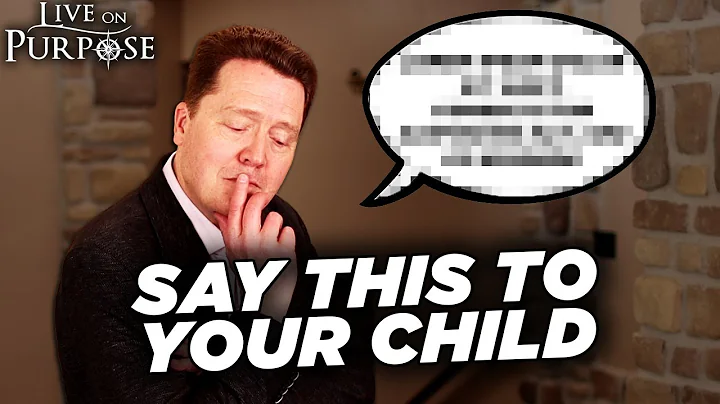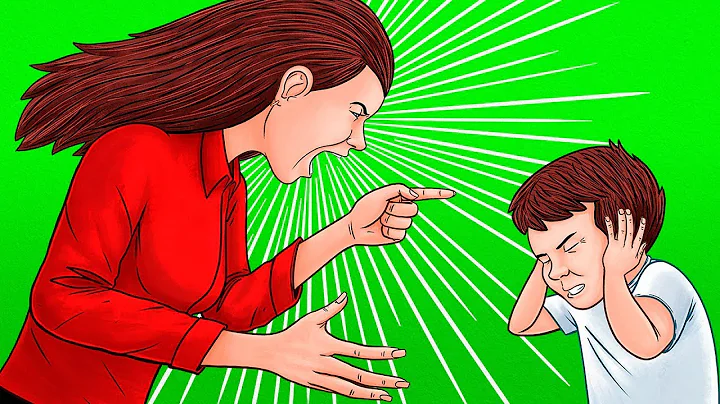
Never use adult standards to push children. Children have their own growth patterns.
Instead of urging, it is better to guide the child to move forward slowly. Author | Li Walnut
I thought it was a holiday, and finally I no longer had to be angry about my daughter's dilly-dallying.
It turns out that I was too naive.
Before doing her summer homework in the morning, she drank half a glass of water, then sharpened her pencil, picked her feet, washed her hands, and then slowly picked up the pen.
Before she could write a few words, she asked me to give her a piece of watermelon.
After eating the watermelon, she went to the toilet again, and then she picked out her ears. After that, she looked for nail clippers to cut off the barbs...
1 hours later, I went to check her homework and found that she still only Wrote a few words.
I suddenly became angry and raised my hand involuntarily.
The daughter subconsciously avoided it, and at the same time, tears fell down.
I suddenly remembered a cartoon I watched not long ago: "Getting Started".
This animated film, which won six international film festival awards, uses an exaggerated approach to express a truth that we have ignored:
People who are stuck in dilly-dallying are actually suffering from inner pain that drives them crazy. In the end, they may even go crazy and become violent. Cry and give up altogether.

Parents are always troubled by their children’s dilly-dallying, but they don’t know that children caught in dilly-dallying are hundreds of times more miserable than their parents.

Behind the grinding
is worry, helplessness, and despair
The protagonist of "Getting Started" dreams of becoming a pianist, and to realize this dream, he needs to practice for several hours every day.
The story begins with practicing piano.
Before he appeared, the piano stood abruptly in the middle of the piano room like a huge problem.
He only glanced at the crack in the door before shrinking back in fear.

He took a glass of water, stood at the door and drank several sips, then went back to get an apple . With this "energy" support, he had the courage to walk into the piano room.
Then, he went to the toilet, answered the phone, and shouted to himself several times to come on;
drank several more sips of water, moved the stool, and measured the distance between the stool and the piano;
moistened his throat and rubbed his hands. ...
made a lot of preparations before starting to practice the piano.

Just after playing, a mouse ran out of the piano box.
He was restless in his heart, so he forced himself to play a few times, and then walked to the window to have some quiet time.
had just been calm for two minutes when a puppet came out of the wall clock and hit his head hard with a hammer, making a "boom boom" sound.

He woke up from a dream and hurried to practice the piano, but after practicing for a while, he collapsed on the piano from exhaustion.
He didn’t want to practice the piano, and he felt guilty for his behavior, so he went to watch TV in depression.
After watching it for a few minutes, he felt uneasy about his conscience, so he turned off the TV and collapsed on the sofa.
looked at the piano while hanging upside down, and found it more and more terrifying. He simply slid under the piano bench, out of sight.

The puppet on the wall clock began to beat himself desperately again, and he was forced to return to the piano...
At the end of the cartoon, the protagonist reluctantly practiced the piano while beating the piano viciously.
couldn’t beat it anymore, so he opened his mouth and bit it.
couldn't bite anymore. He was so angry that he ran, jumped, rolled and screamed in the room.
In the end, he burst into tears and abandoned the piano...

This scene was very similar to the child who was unwilling to do his homework on weekdays.
But often parents only see his procrastination, but fail to understand his inner pain and helplessness.
The more he delayed, the more anxious he became. As time went by, the negative emotions accumulated to the peak.
So we often see news like this: children linger on doing homework until about ten o'clock, and in the end they always burst into tears.
There is a child in Jilin who did not finish his homework until 11:30. In the end, he cried anxiously and had to finish it.
In his tears, there was the pain of suffering until late at night, and the pressure of having to finish despite the pain.
There is also the indifference and severity from parents.
His mother was sitting on the sofa in the back, playing with her mobile phone while urging him to finish it and finish it quickly.
Suffering from multiple pains and escalating anxiety, the overwhelmed child finally broke down and cried.

The deep-seated reasons behind dilly-dallying
We all blame our children
It is obvious that dilly-dallying is of no use, but we still have to cry in the end to finish. Why do children not change despite repeated admonitions?
I used to think that children were lazy and unconscious.
Until one time, the tearful daughter began to fight back angrily:
"There is so much homework during the holidays, I don't want it! The worst is not to watch TV!"
I yelled at her:
"Where is there too much? Just memorize a song in Chinese. Tang poetry and copying a page of new words, mathematics is not just 100 calculation questions and a page of application questions, English is not just recording two picture books and listening to audio for half an hour..."
As he talked, I understood what the problem was.
I only consider that in terms of a whole day, these homeworks are not too much, and there is still more than half of the day left for the children to play.
But looking at the 6 assignments piled in front of me, it will take at least 2 hours.
Let alone the child, even I feel anxious at the thought of supervising her for so long.
Psychologist Pierce Steele said:
"Goals and rewards that are too far away, lack of confidence in success, and dislike of being assigned tasks are the three most important reasons for procrastination."
It turns out that children are not born to be procrastinating. , but because the task was too difficult and she didn't have the confidence to complete it, she expressed her dissatisfaction by procrastinating.
Behind every struggling child, there are worrying problems.
I only saw that the child's dilly-dallying behavior was a headache, but I didn't realize how much pressure the child was under.
watched a TED talk. The speaker also liked to procrastinate very much. He wrote about his pain of procrastination in his blog, which gained great resonance.
Readers from all over the world wrote to him to tell him their pain, including bankers, painters, engineers, and doctors.
He then discovered that people who procrastinate are in a very bad state. They often fall into guilt, fear, anxiety, and self-hatred, which are the root of many depressions and regrets.

He scanned the brains of procrastinators and normal brains and found:
Normal people's brains have rational decision-makers, while procrastinators' brains, in addition to rational decision-makers, also have a "monkey" who enjoys themselves in time to cause trouble, and a procrastinator. The "Panic Monster" appears last.
So the longer people procrastinate, the more likely they are to panic.

However, the child's brain has not yet fully developed. As a rational decision-maker, the prefrontal cortex cannot defeat "monkeys" and "monsters", and his brain will fall into chaos and collapse.

Finally, he began to feel guilty and blame himself, which was more painful than being beaten.
And this kind of pain will make the child reject the next task, gradually forming a vicious circle.
Eventually, the child will even fall into a cycle of self-loathing and self-attack, and his condition will get worse and worse.

The best way to deal with procrastination
is not to urge them at all
When they see their children procrastinating, the first reaction of many parents is to urge them.
But the over-limit effect tells us: the more we urge, the more annoying and rebellious the child will be.
When the child is dawdling again, parents may wish to do this:
1. Encourage the child to take the first step and improve his self-efficacy
Kaikai in the variety show "Dear Little Desk" is obviously very good at dancing, but the teacher let him During the performance, he refused to go on stage until the very end. Teacher
asked patiently and learned that he was worried that he would not dance well, so he would rather avoid and delay to avoid being laughed at if he danced poorly.

After the teacher's encouragement and classmates' cheering, he finally walked to the center and danced a great hip-hop .
The book "The Psychology of Procrastination" says:
"Procrastination may be a psychological strategy to deal with fear.
Many procrastinators worry about being judged by others or themselves, afraid that their shortcomings will be discovered, and afraid that they will fail despite their best efforts. They are still not doing well enough and are afraid of not meeting the requirements... so they choose to procrastinate. "
Children who like to dawdle often lack the courage to take the first step.
The reason may be that I had a bad experience in the past.
For example, you are criticized when you do not do well, you are scolded when you mess up, you are punished when you make a mistake, etc.
Therefore, parents should encourage their children more and criticize less, so as to improve their children's self-efficacy and let them have the understanding of "I can do it".
When a child believes in his own strength, he will not worry and dilly-dally because of fear and fear of difficulties.
2. Guide children to accept "flaws" and appropriately lower their self-expectations.
A friend once complained to me that my daughter was slow in writing homework: she often erased, erased and then rewritten, rewritten a word several times, and it took more than an hour to finish it. New words.
When she urges her, the child becomes anxious and parent-child conflicts are easy to occur.
In this case, parents need to guide their children to accept "flaws". Completion is more important than perfection.
Psychological research has found that people who pursue perfection often have unrealistic requirements for themselves and do things they cannot accomplish in order to prove their excellence.
But their ability is not enough to achieve it, so they will use procrastination to avoid their imperfections.
is like the protagonist in the cartoon "Getting Started", who fantasizes about becoming a famous pianist on the big stage, but because the task is too difficult, he gets stuck in it and finally gives up.

For children who have a tendency to be perfect, parents should help their children lower their self-expectations appropriately.
For example: When you first learn to write, it is normal that your writing is not good. As long as you keep practicing, you will gradually get better.
No one is excellent at the beginning. They all find problems and encounter setbacks in the process of doing tasks again and again, and then continue to work hard and improve, slowly moving toward excellence.
3. Reduce task difficulty and improve children’s motivation to complete.
The Yerkes-Dodson law points out that the simpler the task, the higher the motivation level for people to complete, and the better the completion effect.
On the contrary, the more difficult the task, the lower the motivation level and the worse the completion effect.

I often find that the more homework my daughter has and the more difficult it is, the longer she will linger.
For example, when doing test papers, the assignments she does fastest and best are often very simple, such as doing 50 calculation questions.
Therefore, when you find that your child has been grinding for a long time and is unwilling to start, you should consider whether it is too difficult.
Instead of acting as a "supervisor" to make children feel rebellious, it is better for parents to lend a helping hand to their children and help them overcome difficulties together.
- can help children break down their goals and make plans.
For example, the weekend homework is to do one paper for Chinese, Mathematics, and Foreign Language. It takes too long to complete it all at once, and children are prone to fear of difficulties.
Then let the children complete it in multiple times, one on Friday, one on Saturday, and one on Sunday.
splits big and difficult tasks into small tasks and reduces the difficulty. Children will be more willing to take over and it will be easier for them to get started.
- can also give clearer instructions.
does not say "Hurry up and do your homework", but says "Finish the homework in one hour";
does not say "Hurry up to school", but says "We will leave on time at 7:40";
does not say "Hurry up and go to bed" , and said, "I'll give you 10 minutes to wash up, and we'll turn off the lights and go to bed at 9 o'clock."
The clearer the instructions, the more aware the children will be and how to adjust their own rhythm.
4. Provide a pleasant atmosphere for the child and allow him to have his own rhythm
A study by Timothy Pychl, Ph.D. in Psychology, found that strict parents are more likely to cultivate obsessive children.
Because they require children to be unconditionally obedient, they are more likely to suffer from children's hostility.
Good parents know how to create a pleasant atmosphere where children can easily complete tasks at their own pace.
After all, some children are naturally slow, but there is nothing wrong with working slowly and carefully as long as they are not delayed or late.
There are also younger children who are immature in all aspects and are unable to complete tasks quickly and efficiently. They cannot ask children at the speed of adults.
Instead of blindly urging children to annoy adults and make children resentful, it is better to give children some room to grow and let them learn to adjust themselves.
Only children who are respected can take the initiative, and they can be more focused and efficient.

Adler said: "Many behavioral problems in children can be attributed to them feeling discouraged."
Dilly-dallying is no exception.
Good parents are like good doctors. They can not only see the "disease" of their children, but also understand their children's pain.
Compared with dawdling, the helplessness, resistance, and pain of children facing difficulties are more worthy of being seen.
Click [Like it] . I hope every child who is deeply troubled by the "drifting disease" can be cured by the love and tenderness of his parents.





















